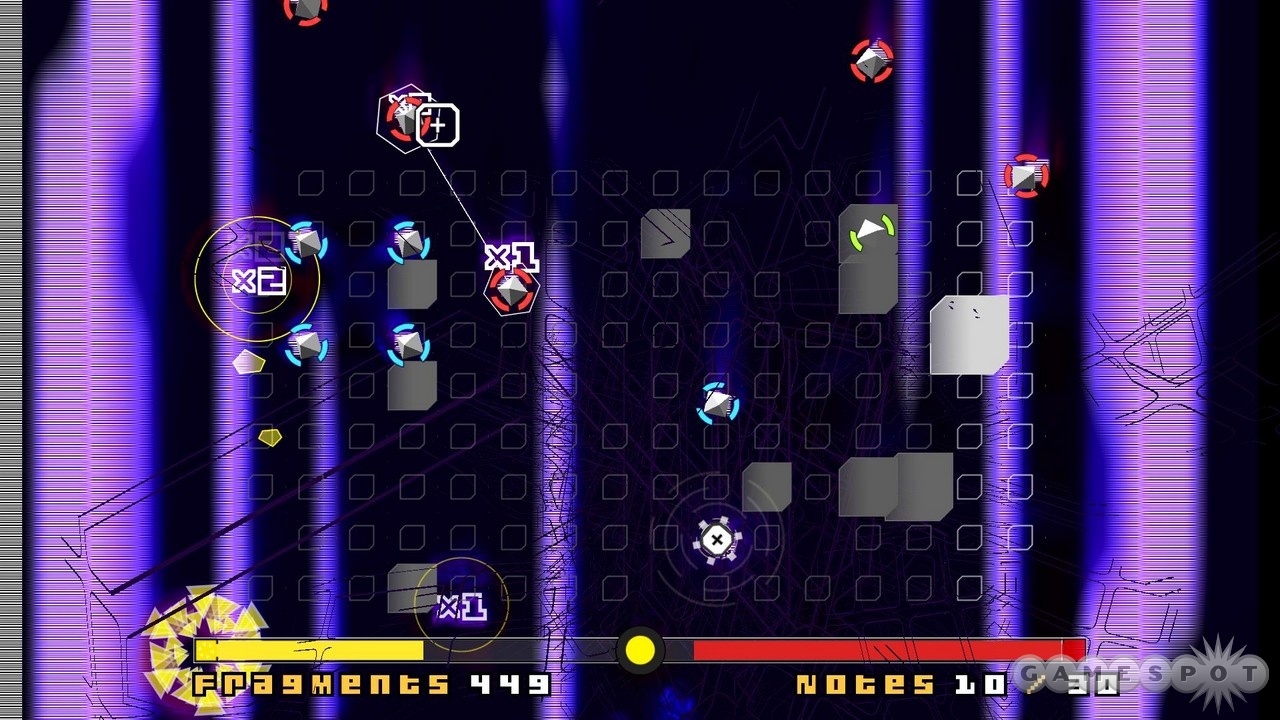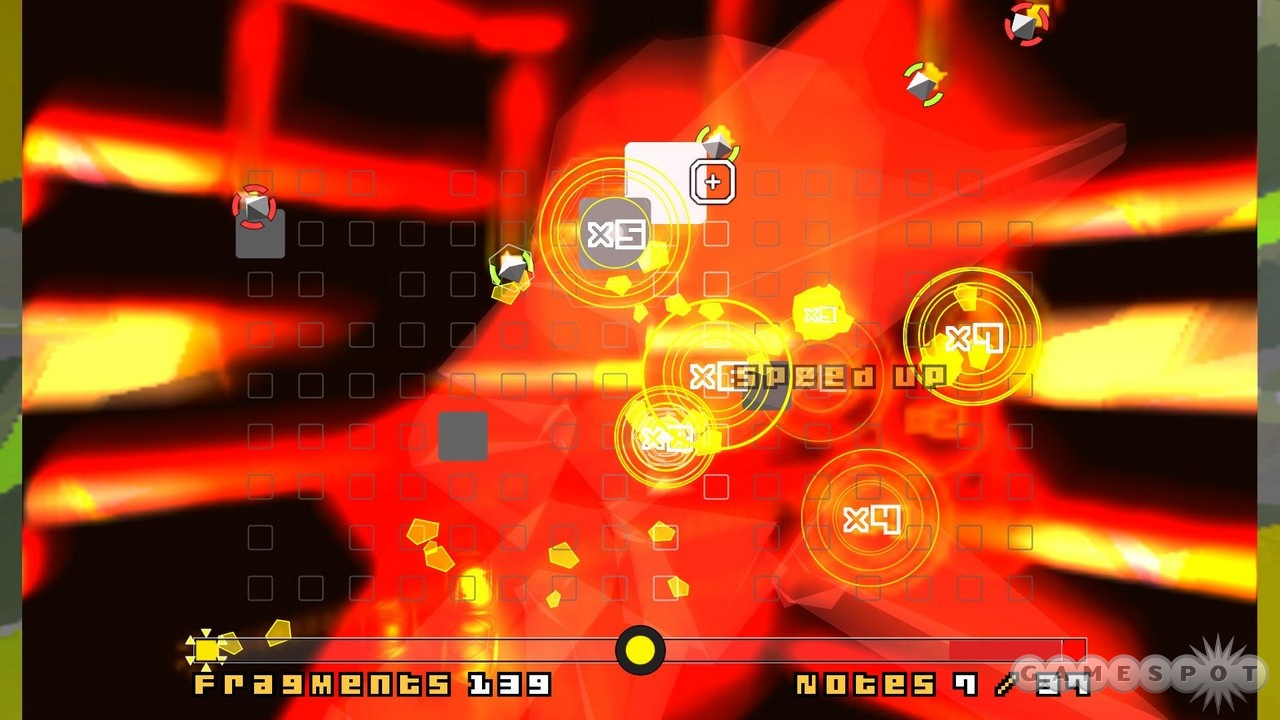Games like Rez and Everyday Shooter have combined music and user interaction in unique ways--and more recently, Sound Shapes, Symphony, and Child of Eden are among a burgeoning group of games focused on uniting gameplay and soundtrack into a single cohesive experience. Developer Big Robot's AVSEQ is billed as an audiovisual sequencer and takes the structure of a color-matching puzzler, the sonic landscape of each stage evolving as you match like-colored atoms as they drift from the top of the screen to the bottom. AVSEQ inspires a few minutes of ambient hedonism as you lose yourself in the flow of impromptu electronic melodies. Yet such moments are fleeting, and great ideas are only grace notes in a game that feels like a short prelude to a sonata that's never played.
AVSEQ is separated into nine brief stages, each one representing a different musical tapestry. Atoms of a few colors fall from the top of the screen, and you must connect them into chains of the same color before detonating them to the tune of a harmonically indistinct arpeggio. Special white atoms allow you to bridge multiple colors, turning your turquoise chain into a multicolor affair. Detonating chains produces special white pips that not only act as color-joiners, but add notes to the music. There are also a few white atoms that act as power-ups, slowing down or stopping time--or more aggravatingly, speeding things up, and causing the soundtrack to squeak along at a cheerily high pitch.
Your goal is to trigger a set number of notes before the time runs out. There's an initial pleasure to the tempo of maximizing your chains and detonating falling atoms before they reach the bottom. Missed atoms remove notes and create white noise that disrupts the flow of the soundtrack. It's an appropriately distracting audio cue that encourages you to improve your performance. And you'll want to improve, since the final few stages are challenging enough that you'll need to give them multiple goes before you meet your goal.

And yet AVSEQ is over so quickly that it's hard to shake the feeling that you're missing something. That's due in part to misleading (and impossible to earn) Steam achievements that imply there are stages to unlock, even though the initial nine are the only ones you get. Each level is playable in Infinite mode, but once you reach a certain threshold in this mode, the game stops producing note-spawning pips. Without them, the game becomes too plain to be addictive, and you're likely to abandon the stage a mere few minutes in.
Another odd design flaw is in the high-score entry. At the end of each stage, you enter your name or initials, and the name associated with the best performance appears in the stage list. Yet there is no local leaderboard, let alone an online one. Even so, the game prompts you for your name every time--but unless you actually set a new record, the name doesn't appear anywhere. Why prompt players if they don't actually exceed the previous record? The entered name simply disappears into the ether, never to be seen again.

These flaws severely limit AVSEQ's replay value, for while the mixture of color matching and ambient music is appealing, the game is a skeleton without flesh, failing to capitalize on a foundation with promise. It costs a scant $4.99, but with just three main atom colors, a few basic power-ups, nine short stages, no leaderboards, and disappointing Infinite gameplay, AVSEQ is a precious bud that never reaches full bloom. There's still a fresh beauty to it, but it's hard to cultivate a garden when the seeds fail to take root.